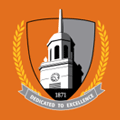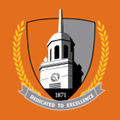SUNY Effective Online Practices Award Program
Purposeful Participatory Action Research: Developing Responsive DEI Program
Online Teaching & Learning Practices
The push to graduate a more diverse population has taken on new urgency, as the world grapples with social unrest, a digital divide, and educational access issues. More concerning, the National Association of Colleges and Employers (NACE) study also found that students lacked Diversity, Equity and Inclusion (DEI) skills, making them less desirable to employers (NACE, 2016). Our findings, recently presented at the 12th Annual United Nations Geneva Forum in Dec. 2020, this presentation builds on the successful use of student data as the baseline for developing innovative DEI programming, which uses gamification and curricular innovations.
Course review process at SUNY Canton is a peer-driven effort anchored in a course quality review rubric. New online, hybrid, and flex courses must be approved prior to their delivery and all previously approved courses must be reviewed every three years. A governance committee is charged with the online course review. Courses are evaluated using a governance-approved course quality review rubric. The rubric SUNY Canton uses was adapted from SUNY Online Course Quality Review rubric (OSCQR). The rubric consists of 50 essential and suggested standards. Each standard carries with it a certain amount of points and each course must reach an agreed-upon minimum score.
Using Distance Learning Faculty Mentors to Help Promote Success in Online Classes
Online Teaching & Learning Practices
A peer mentor program expands training options beyond single workshops or training sessions, offering flexible approaches to meet the needs of a diverse faculty. Ongoing professional development programs introduce faculty to new teaching and learning technologies as well as pedagogical approaches for teaching distance education programs. Additionally, Faculty mentorship can provide important individual, customized, and discipline-specific training for faculty who are new to distance education and online teaching.
Using Adaptive Release to Foster Flexibility for Online Students While Maintaining Rigor
Online Student Support & Concierge Practices
Harnessing the power of the tools of your learning management software provides options for your students. Blackboard’s Adaptive Release allows students to unlock content based upon the successful completion of established criteria set by the instructor. It allows students to accelerate the learning process while ensuring they are mastering content with preset proficiency levels that determine whether students are prepared to move forward.
Employing adaptive release ensures equitable opportunities by removing barriers. It affords students opportunities to manage time, develop self-regulatory skills, schedule management, flexibility, ownership, goals, and allows for future thought processes more effectively. The choice to take advantage of the flexibility that adaptive release offers is with the students. Students can progress through the course as outlined in the syllabus or they can use adaptive release to move more quickly through a module if they master the content. Additionally, if a student chooses to move through a module and start a new module in less than a week, they are not locked into the quicker pace for the semester. Adaptive release provides individualized flexibility while maintaining rigor without regard for academic discipline. We teach in different academic areas, library and physical education, and we successfully implement Adaptive Release.
A common theme in educational research centers on the need to reach students "where they are" in terms of their diverse and emergent developmental profiles. In world languages pedagogy, upper-level students often present a variety of motivational and competency needs, which makes a “one-size fits all” approach problematic. Inspired by Buffalo State College's Department of Modern and Classical Language's Ambassador Model, which holistically engages four "exit profiles" (Diplomat, Scholar, Engaged Professional, Global Citizen), I developed an Autonomous Language Learning component to intermediate and upper-level language coursework. Making use of Blackboard Learning's journal and rubric-creation features, the Autonomous Language Learning Component offers students a private, dialogic space with the instructor where they can focus on linguistic and sociocultural explorations of the target language and its cultures. In addition, students are encouraged to integrate their own academic and career interests. The work always focuses on autonomy support, with a focus on autonomy, competency, and relatedness (Ryan & Deci, 2017) within the student's emergent Zone of Proximal Development (Vygotsky, 1934/2012).
Promoting diversity and inclusion in an online Spanish course
Online Diversity, Equity & Inclusion Practices

In order to respond to a long-standing schism in world languages pedagogy between communication, content, and culture-focused learning experiences, I developed an online fourth-semester Spanish course that puts e-learning tools to the service of an integrative pedagogy, one that recognizes underrepresented groups in the Spanish-speaking world. Informed by the Modern and Classical Language Department at Buffalo State College's Ambassador Model, the approach targets the development of Global Citizenship and Engaged Professionalism.
Over 25 SUNY institutions joined forces for the Women's Empowerment Draft, which uses the enthusiasm for professional sports to build excitement for Women's History Month. Alfred University's New York State College of Ceramics leads an effort to produce sporty jerseys, trading cards, and mosaics which each school can use as an educational tool kit for Women's History Month. The program is designed to bring together a statewide collaboration completely ON-LINE and using both ZOOM and the power of social media with daily posts.

Each student creates an Individualized Learning Plan in each of my courses. I ask students to choose from among several sets of multiple kinds of possible learning goals and outcomes, and then from among specific ways to operationalize working toward those goals and outcomes. These ILPs become the foundation of their work in the course, and a cornerstone of my role in their learning process. A significant component of their final grade is based on their engagement in this process.
Using a Blackboard Repository to Disseminate Resources and Collaborate in an Embedded Librarian Program
Online Student Support & Concierge Practices

The Embedded Librarian Program assigns a librarian to a research-based course to assist students in Blackboard. Working within Blackboard, a librarian collaborates with faculty to provide enhanced library service and assistance to students. Embedded Librarianship requires advanced planning and collaboration between the requesting faculty member and Librarian. As demand for this service increased a Library Repository was created in Blackboard in order to foster collaboration and sharing among embedded librarians. This repository consists of research tools including links to library resources, research guides, pathfinders, tutorials and videos.

Trauma is an epidemic in the United States. Over 60% of men and 50% of women report exposure to at least one lifetime traumatic event (U.S. Department of Health and Human Services). Traumatic events include domestic and sexual violence, school and mass shootings, community and police violence, suicide, war, accidents and natural disasters. Exposure to trauma can lead to both short and long-term impacts on physical and emotional health, including Post Traumatic Stress Disorder. Previous research has found that trauma exposure can also negatively impact academic and career outcomes (see Norway, Huand and Mossige, 2012; Horsmon 2000 and 2006; Nikischer, 2018). This effective practice, Universal Design for Trauma (UDT), outlines five key steps to designing courses that address trauma content and student trauma history (Nikischer, 2020). UDT is a framework for accessibility, ensuring that online courses are built to successfully engage and support all students.